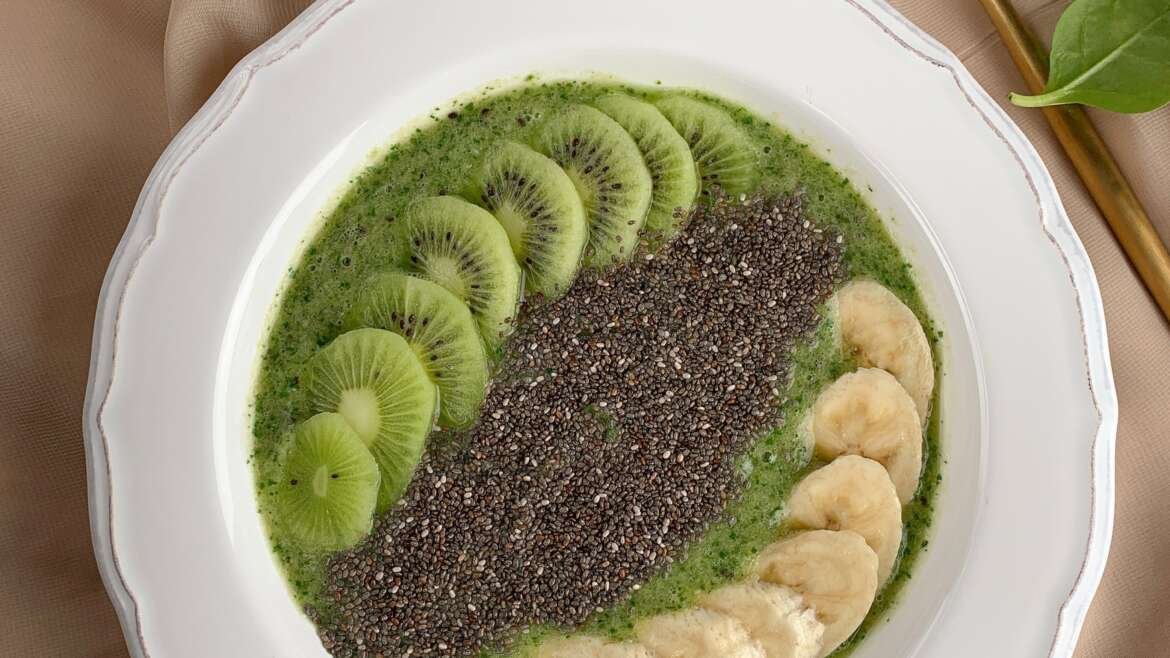

Chia seeds are small, but they are packed with nutrients. For centuries, these seeds have been touted for their health benefits as a staple in the ancient Aztec and Maya diets.
Chia seeds’ antioxidants, minerals, fibre, and omega-3 fatty acids may promote heart health, strong bones, and blood sugar management. Furthermore, chia seeds are versatile and can be used in a variety of recipes. I enjoy their gel-like consistency by combining them with liquid and making chia pudding.
Here are six chia seed health benefits:
1. Very nourishing
Chia seeds are the tiny black or white seeds of the Salvia hispanica L. plant. They are thought to be native to Central America. Historically, the seeds were used in the diets of the Aztec and Mayan civilizations, as well as for medicinal purposes, religious rituals, and cosmetics. Chia seeds are now popular all over the world. Chia seeds were considered highly nutritious by ancient civilizations, and this belief is supported by modern science.
In fact, 1 ounce (28 grammes or 2 tablespoons) of chia seeds contains the following nutrients:
calories:138
4.7 grammes of protein
8.7 grammes of fat
5 grammes alpha-linolenic acid (ALA)
11.9 grammes of carbohydrates
9.8 grammes fibre
14% of the Daily Value for calcium (DV)
iron: 12% of the daily value
magnesium: 23% of the daily value
Phosphorus: 20% of the daily value
zinc: 12% of the daily value
15% of the DV for vitamin B1 (thiamine).
Niacin (vitamin B3): 16% of the DV
This nutritional profile is especially impressive considering it is for a single serving of approximately two tablespoons.
2. High in antioxidants
Chia seeds are also packed with antioxidants. Antioxidants not only keep the sensitive fats in chia seeds from going rancid, but they also benefit human health by neutralising reactive molecules known as free radicals, which can damage cell compounds in your body if they build up. Free radical damage, for example, contributes to ageing and diseases such as cancer. Chia seeds contain antioxidants such as chlorogenic acid, caffeic acid, myricetin, quercetin, and kaempferol. All of these may have heart and liver protective properties, as well as anticancer properties. Chlorogenic acid, for example, may help lower blood pressure, whereas caffeic acid has anti-inflammatory properties.
3. May aid in weight loss
Chia seeds contain fibre and protein, which may aid in weight loss. Chia seeds contain nearly 10 grammes of dietary fibre per ounce (28 grammes). That means they contain 35% fibre by weight. Although the research on this topic is conflicting, some studies suggest that eating fibre may help prevent overweight and obesity. Furthermore, the protein in chia seeds may help to reduce appetite and food intake. In one study of 24 people, eating 0.33 ounces (7 grammes) or 0.5 ounces (14 grammes) of chia seeds mixed with yoghurt for breakfast increased feelings of fullness and reduced food intake in the short term when compared to eating chia-free yoghurt. Nonetheless, studies on the effectiveness of chia seeds for weight loss have yielded conflicting results.
In an older study from 2009, consuming 50 grammes of chia seed supplements per day for 12 weeks had no effect on body weight or health markers such as blood pressure and inflammation markers. In contrast, a 6-month study of 77 people with overweight or obesity and type 2 diabetes who followed a low-calorie diet discovered that those who took chia seeds daily lost significantly more weight than those who received a placebo. Though chia seeds are unlikely to cause weight loss on their own, they may be a useful addition to a balanced, nutritious diet if you’re trying to lose weight.
4. It may reduce your risk of heart disease:
Because chia seeds are high in fibre and omega-3 fatty acids, eating them may lower your risk of heart disease. Soluble fibre, such as that found in chia seeds, can help lower total and LDL (bad) cholesterol levels in the blood. As a result, your risk of heart disease may be reduced. Some rat studies have found that chia seeds can reduce certain heart disease risk factors, such as high triglyceride levels and oxidative stress. A small number of human studies discovered that chia seed supplements significantly reduced blood pressure in people with hypertension, or high blood pressure, which is a major risk factor for heart disease. Overall, chia seeds may be beneficial to cardiovascular health, but more research is needed.
5. Contains a variety of important bone nutrients:
Chia seeds are high in a variety of nutrients that are beneficial to bone health, including: calcium phosphorus magnesium Many observational studies indicate that getting enough of these nutrients is critical for maintaining good bone mineral density, which is an indicator of bone strength. Furthermore, the ALA in chia seeds may help with bone health. Consuming this nutrient may also be associated with increased bone mineral density, according to observational studies. As a result, eating chia seeds on a regular basis may help keep your bones strong. In one animal study, rats given chia seeds daily for about 13 months had higher bone mineral content than a control group. The authors concluded that ALA may have played a role in this benefit. However, aside from animal studies, only a few studies have specifically investigated this topic. More human research is ultimately required.
6. May Help Lower Blood Sugar Levels:
Chia seeds may aid in blood sugar regulation due to their fibre content and other beneficial compounds. Diabetes patients may have high blood sugar levels. High fasting blood sugar levels are linked to an increased risk of a variety of complications, including heart disease (25Trusted Source). Animal studies suggest that chia seeds may improve insulin sensitivity. This may aid in the stabilisation of blood sugar levels after meals (26, 1Reliable Source). According to a study conducted between 2010 and 2013, eating bread containing chia seeds helps lower post-meal blood sugar rises in healthy adults when compared to eating bread without chia seeds.


Add Comment